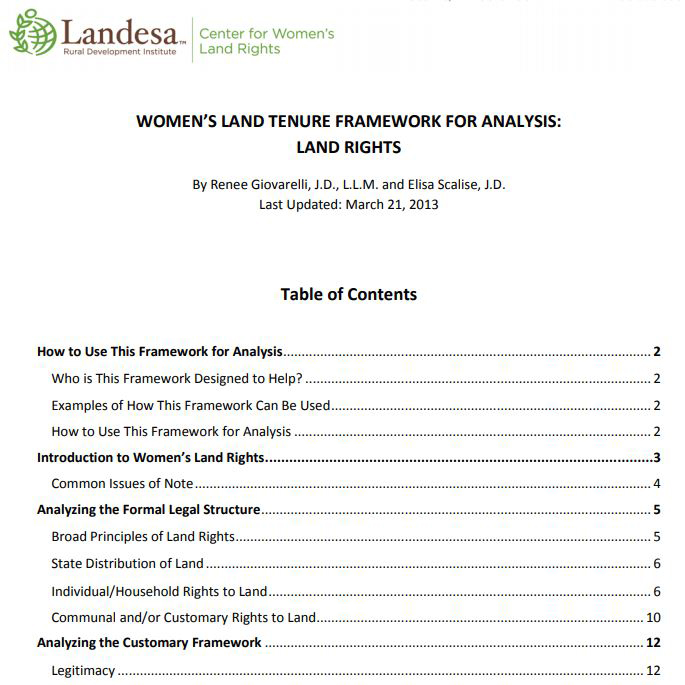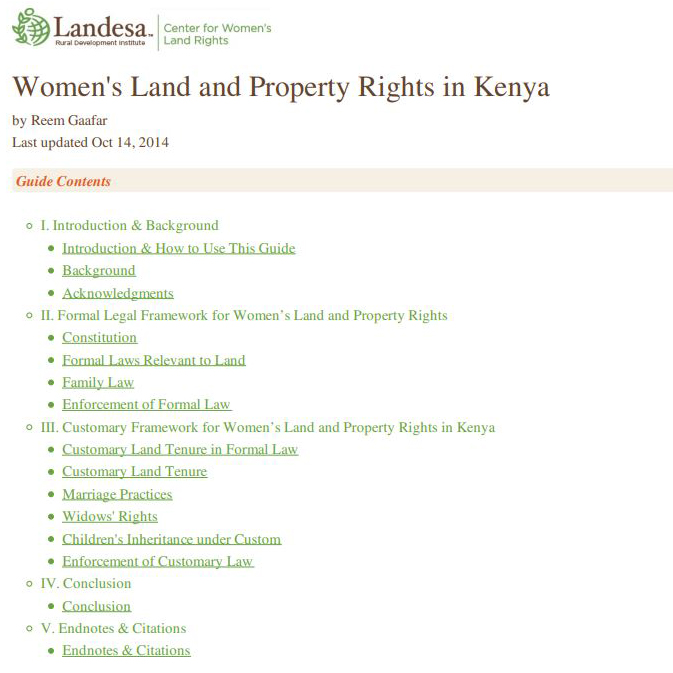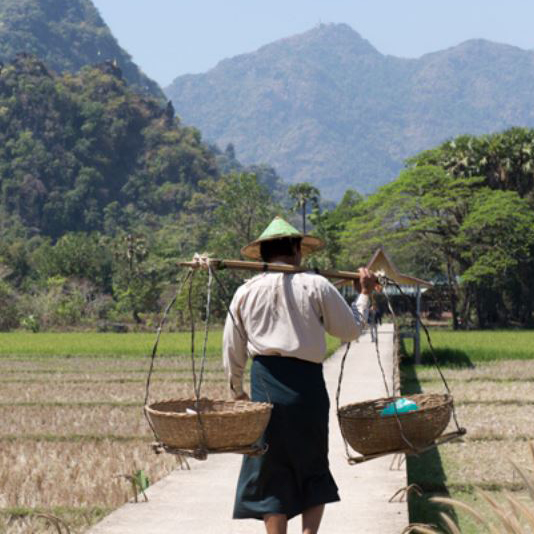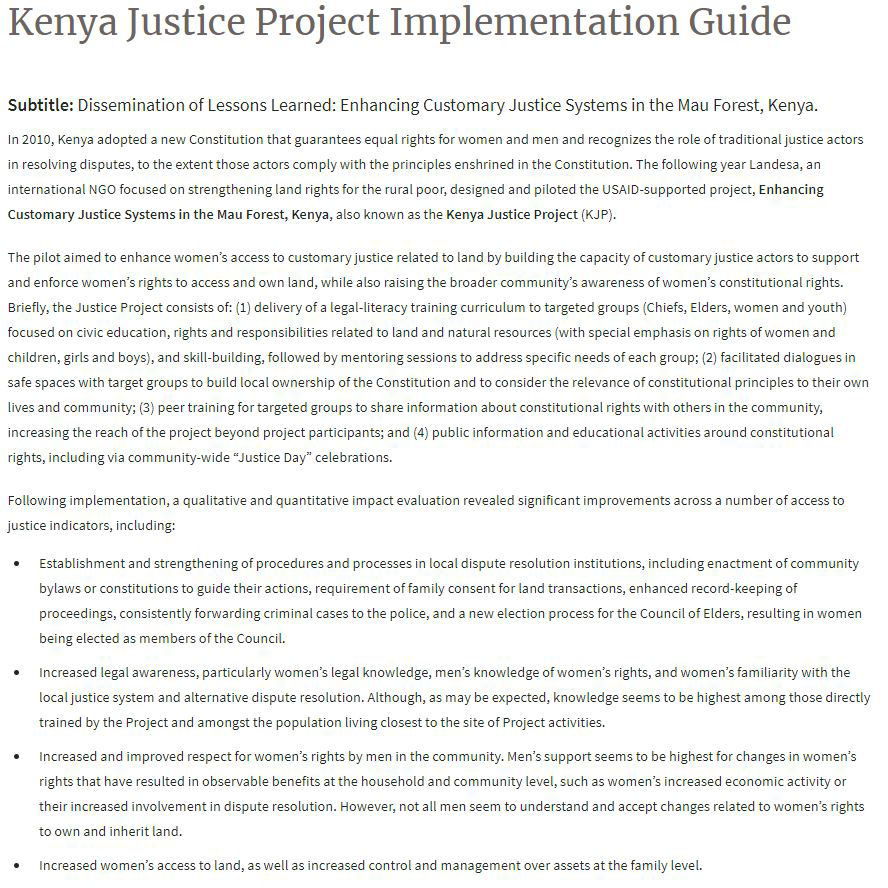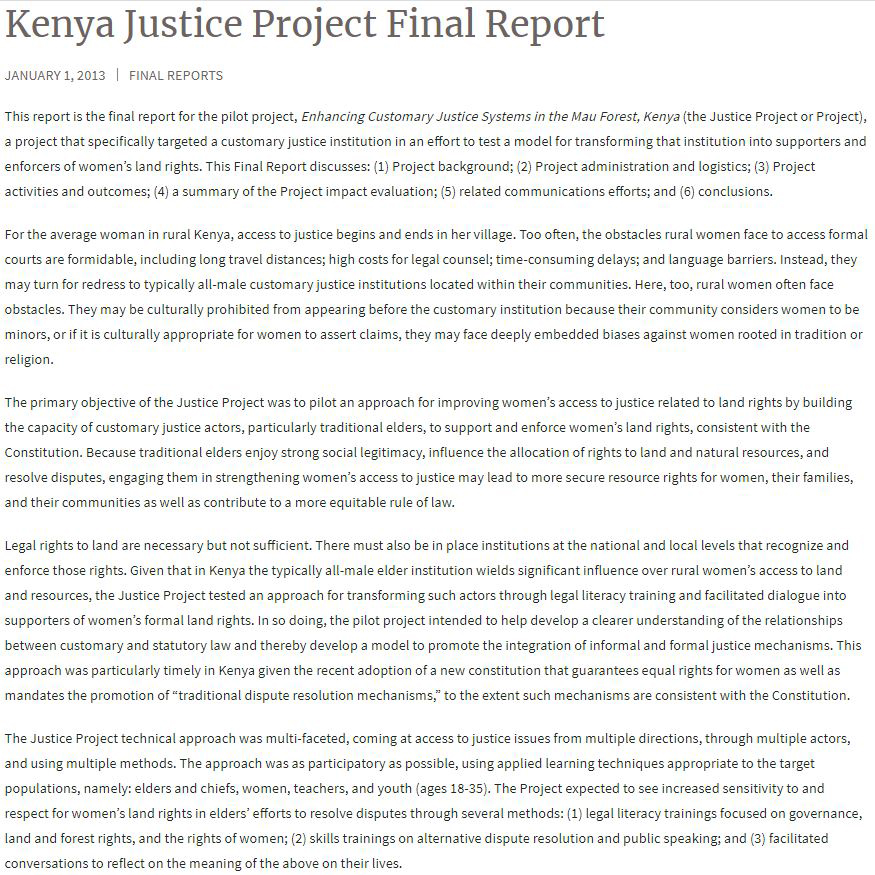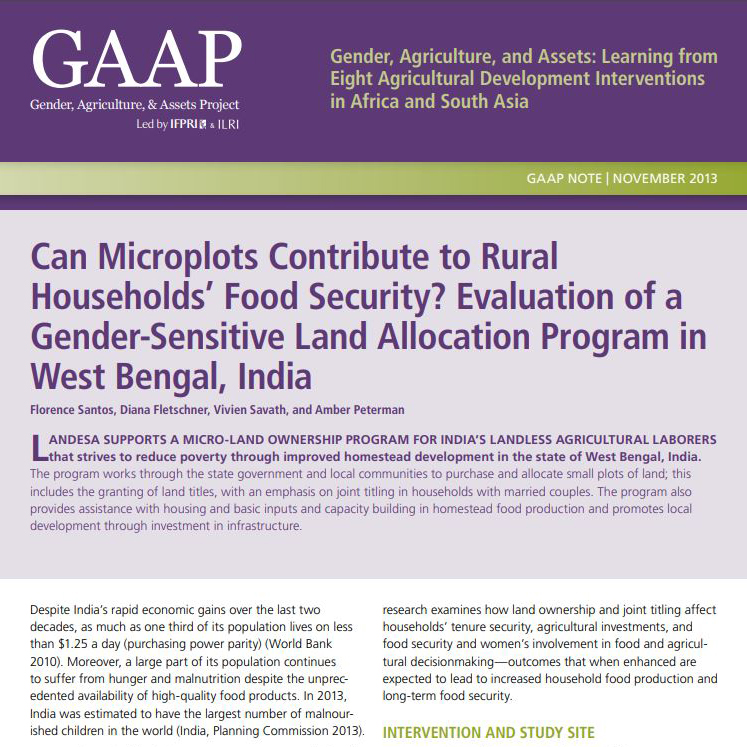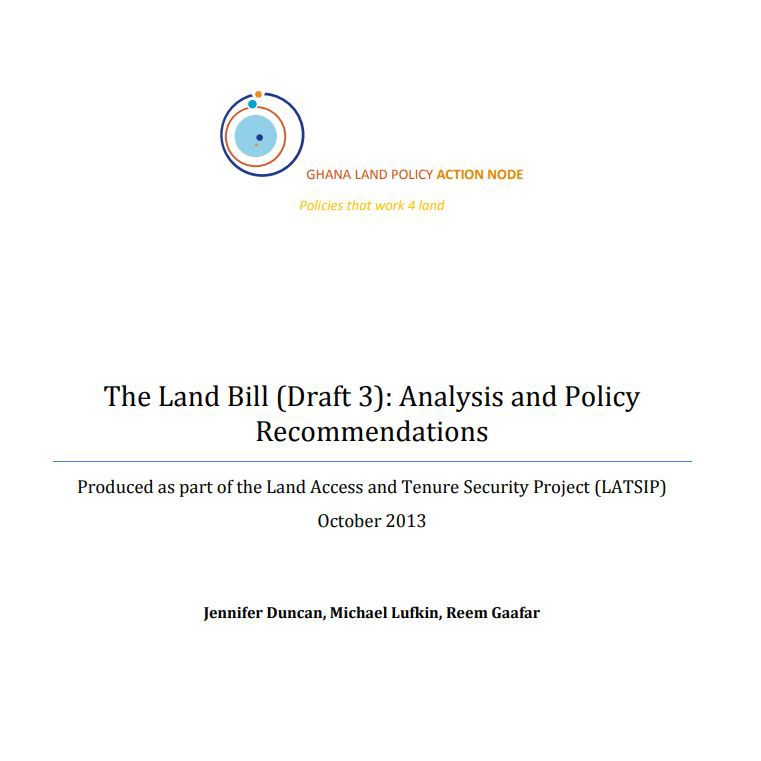Landesa conducts research throughout the world on issues to land rights and development. Search or browse our published articles, books, and reports.
Showing 161 results
Women’s Land Tenure Framework: Land Rights
The Landesa Center for Women’s Land Rights developed the Women’s Land Tenure Framework to assist anyone who is interested in
Women’s Land Rights Guides for Development Practitioners
The Landesa Center for Women’s Land Rights has created four new practice guides, which are practical resources for development practitioners,
Recommendation for Implementation of Pro-Poor Land Policy and Land Law in Myanmar: National Data and Regional Practices
With the common aim of supporting the development of a protective, pro-poor legal framework, that will empower farmers to use
Kenya Justice Project | Implementation Guide
In 2010, Kenya adopted a new Constitution that guarantees equal rights for women and men and recognizes the role of
Kenya Justice Project | Impact Evaluation Report
The primary objective of the Justice Project was to pilot an approach for improving women’s access to justice related to
Can Government-Allocated Land Contribute to Food Security? Intrahousehold Analysis of West Bengal’s Microplot Allocation Program
Landesa supports a micro-land ownership program for India’s landless agricultural laborers that strives to reduce poverty through improved homestead development
Large-Scale Land Acquisition for APP Forest Plantations: Field Finding and Recommendations
The Chinese central government has consistently taken decisive legal and policy measures over the past 35 years to secure, enhance,
The Land Bill (Draft 3): Analysis and Policy Recommendations
This report analyses Ghana’s Land Bill, Draft 3, and provides recommendations for how the Bill could more clearly and adequately
AGRA LTPR Risk Assessment Tool: Implementation Guidelines
December 2013 — This memo presents implementation guidelines for a land tenure risk assessment tool developed as part of the Ghana
ICT in Support of Evidence Based Policy Making: Land and Gender in the Western Balkans
This article presents the results from Greater Than Leadership program for Inclusive and Informed Land Administration in the Western Balkans,
